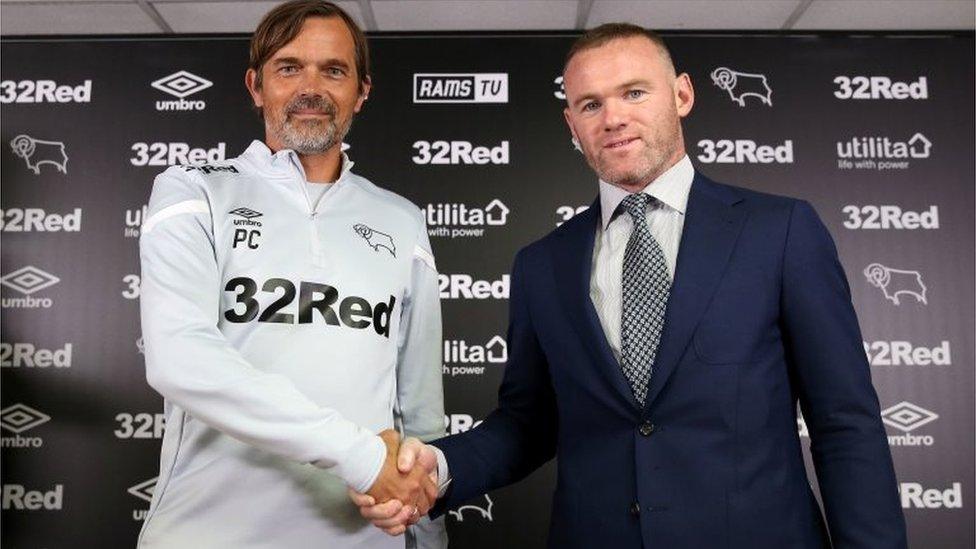Should unhealthy food and drinks be allowed to sponsor sports?
- Published
- comments
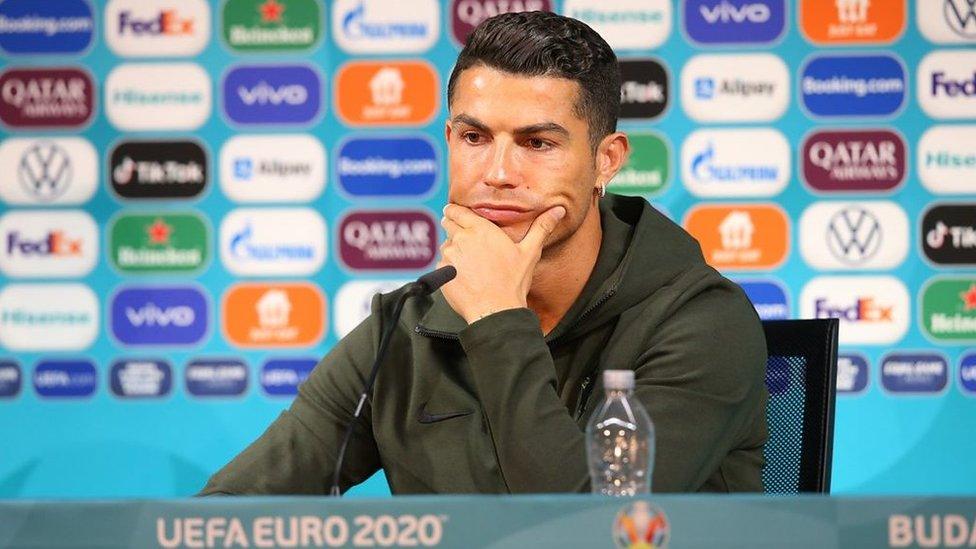
Ronaldo preferred "agua" (water) to Coca-Cola
It all started on Monday when Portugal captain and football superstar Cristiano Ronaldo sat down for a press conference ahead of his teams Euro 2020 match against Hungary the following night.
Spotting two bottles of Coca-Cola on the table in front of him, Ronaldo pushed them away and encouraged people to drink "agau!" (water) instead.
The day after, Paul Pogba removed a non-alcoholic bottle of beer from his press conference table. The Manchester United star is a practising Muslim and does not drink alcohol of any kind.
Then, on Wednesday, the hat-trick! Italy midfielder Manuel Locatelli also replaced the Coca-Cola bottle on his table with water.
All the clips got lots of attention online. And now, Uefa - who run the tournament - have warned teams that they could face fines if their players move drinks provided by sponsors at news conferences.
Why is this a big deal?
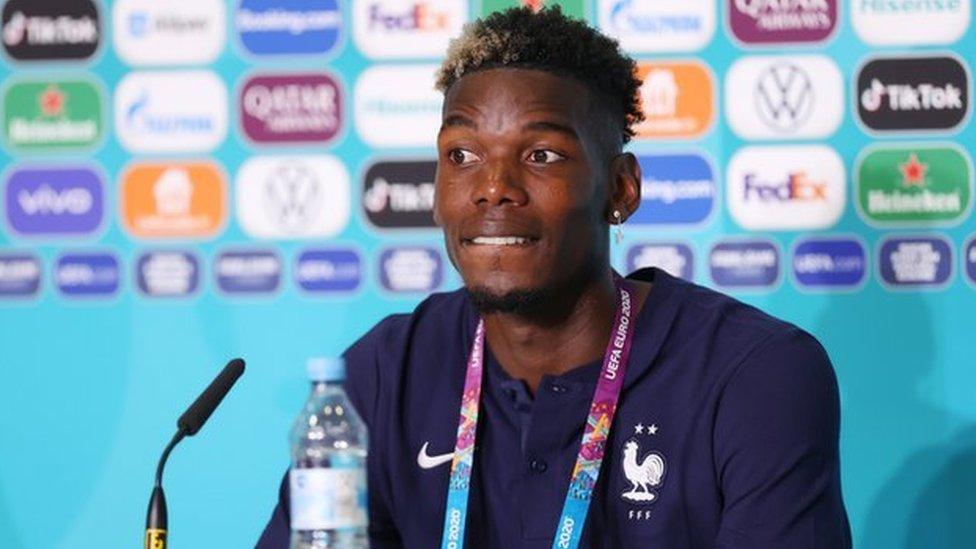
Paul Pogba also removed a drink from his press conference table
The Euros are not only a massive football event, they're also big business that generates LOTS of money.
Some of the world's biggest brands spend millions of pounds to be part of Euro 2020, and have their names and products displayed on billboards, advertising in stadiums, and - yes - drinks on press conference tables.
Coca-Cola, JustEat and Adidas are just some of the names behind this year's tournament. McDonald's has been a big sponsor in the past.
The money is used to fund the tournament, but also goes towards other areas of football - like youth teams and community pitches.
However, Uefa's Euro 2020 tournament director Martin Kallen, has said he understood the actions of players who, like Pogba, did such things for religious reasons.
Uefa has reminded participating teams that partnerships are integral to the delivery of the tournament and to ensuring the development of football across Europe, including for youth and women.
Should unhealthy food and drinks be allowed to sponsor sports?
Coca-Cola is one of the big sponsors of Euro 2020.
McDonalds isn't a sponsor this time, but in the past the fast food chain has sponsored the Euros, World Cups and Olympic games.
Although brands like these make a range of goods, they are known for unhealthy foods and sugary drinks - items which are at odds with a diet needed to be a top athlete.
Cristiano Ronaldo, for example, takes his diet very seriously and is known not to have carbonated drinks, which helps to explain his decision to remove the bottles.
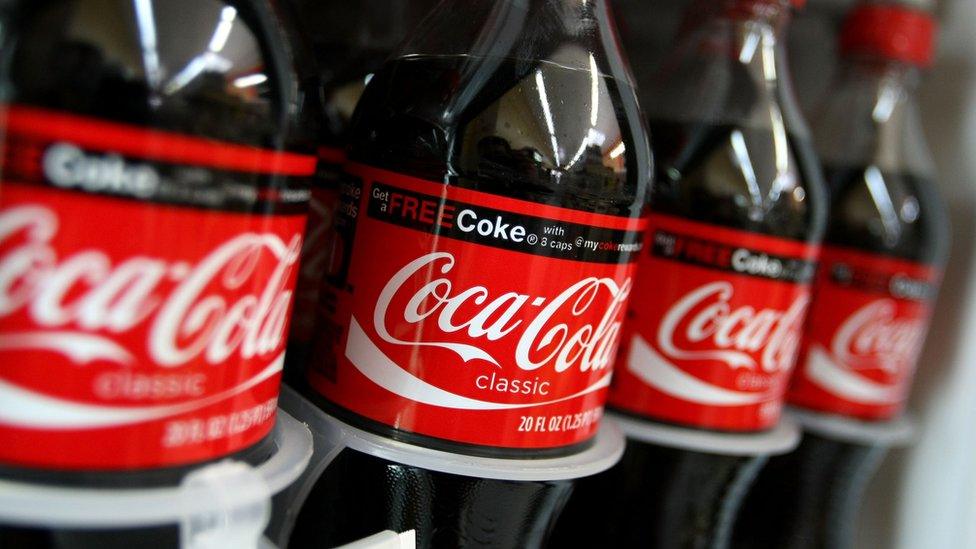
Coca-Cola are one of the big sponsors of Euro 2020
But, the money sponsors provide is important.
England manager Gareth Southgate has offered his view: "I think there are lots of sponsors in sport and the impact of their money at all levels helps sport to function, particularly grassroots sport in our country requires investment and without some of those companies it would be very difficult to have the facilities we need.
"We're mindful in our country of obesity and health but everything can be done in moderation, and anything that is done in moderation is rarely a problem."
So, what do you think - should unhealthy food and sugary drinks be allowed to sponsor sports? Have your say in our vote below and then tell us what you think in the comments!
If you can't see this vote, click here.
- Published12 September 2023
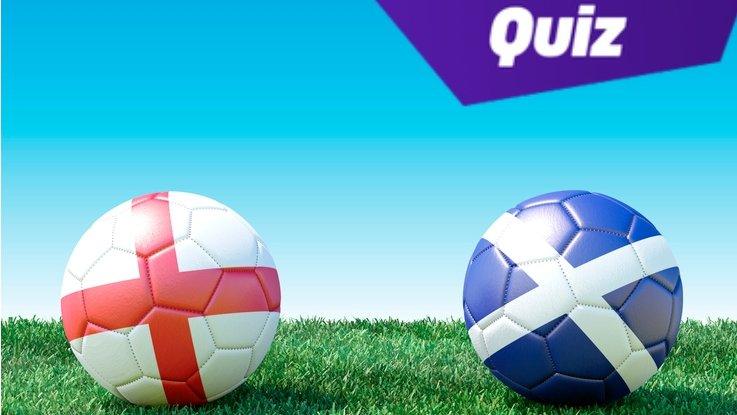
- Published14 June 2021
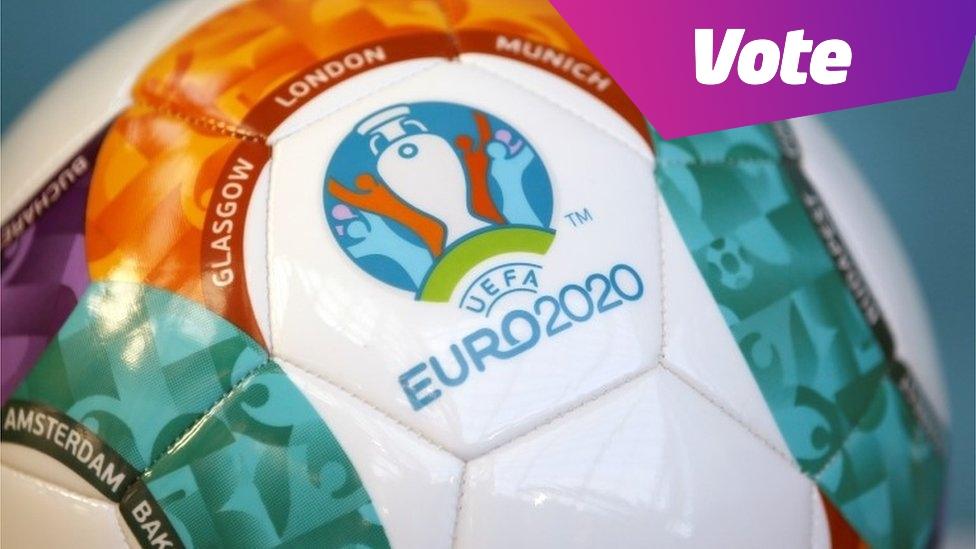
- Published10 August 2019
